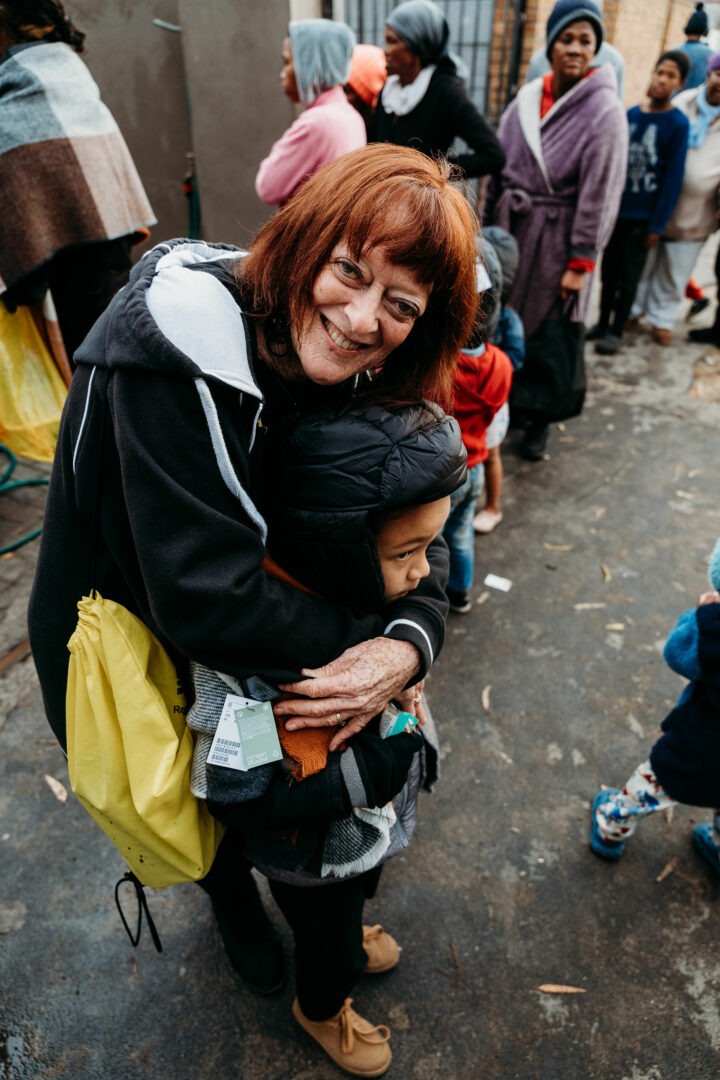How One Woman’s Heart Helped Feed a Nation and Rebuild a School
When you meet Margolite, it’s hard not to feel the warmth first. She greets you with the kind of ease that makes you forget where you are… As though you’ve just sat down at her kitchen table, coffee brewing, compassion already in the air. She has that rare mix of steel and softness, of a woman who has seen the worst of scarcity and still chooses abundance.
For years, Margolite was one of the quiet architects behind SA Harvest’s procurement success: a relentless connector, a phone call away from turning surplus into sustenance. The heartbeat behind the trucks, the food rescued, and the millions of meals shared. But to understand what makes her story extraordinary, you have to go back to the simplest gesture imaginable: a pot of soup.
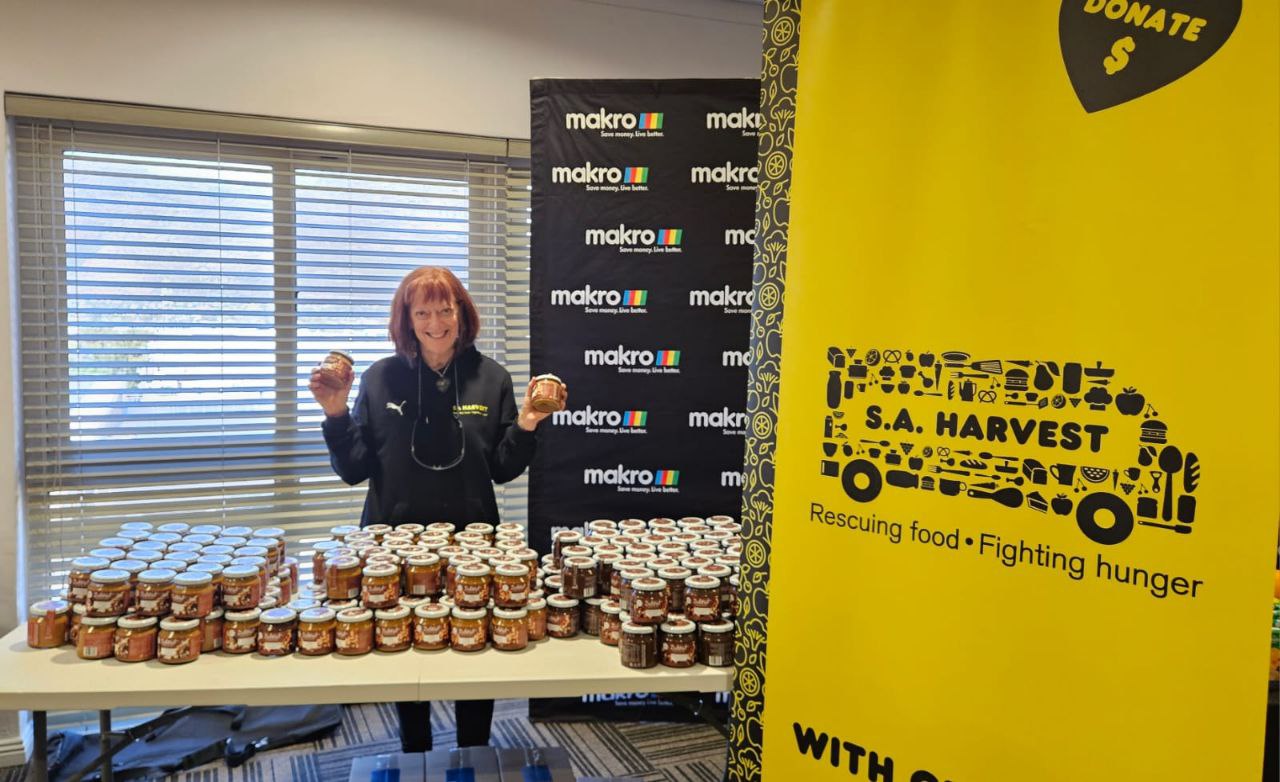
A Pot of Soup and a Promise
“It started because I just wanted to feed people,” she says. “I thought, I’ll make a pot of soup, put it in the car, and take it to someone hungry. But you soon realize that it is almost impossible. Where do you stop? How do you serve it? So, I joined Ladles of Love instead. They already had the structure. I didn’t have to carry the pot. I could just serve.”
That’s how her story of purpose began: not with a grand plan, but with an instinct. The instinct to notice suffering and refuse to look away.
At Ladles of Love, she didn’t just serve soup; she helped build systems. She started assisting with procurement, phoning suppliers, building relationships, and solving problems. It wasn’t long before she caught the attention of another food rescue movement: SA Harvest. During the early, chaotic months of COVID-19, when the world was locked down and hunger was exploding, she got a call asking if she’d join the team.
She didn’t hesitate. “At the time, it was Ali Khan and Manu Wegmershaus getting the food in. Then I started phoning, and that’s how it began.”
What she built from there would transform the way SA Harvest sourced food across the country.
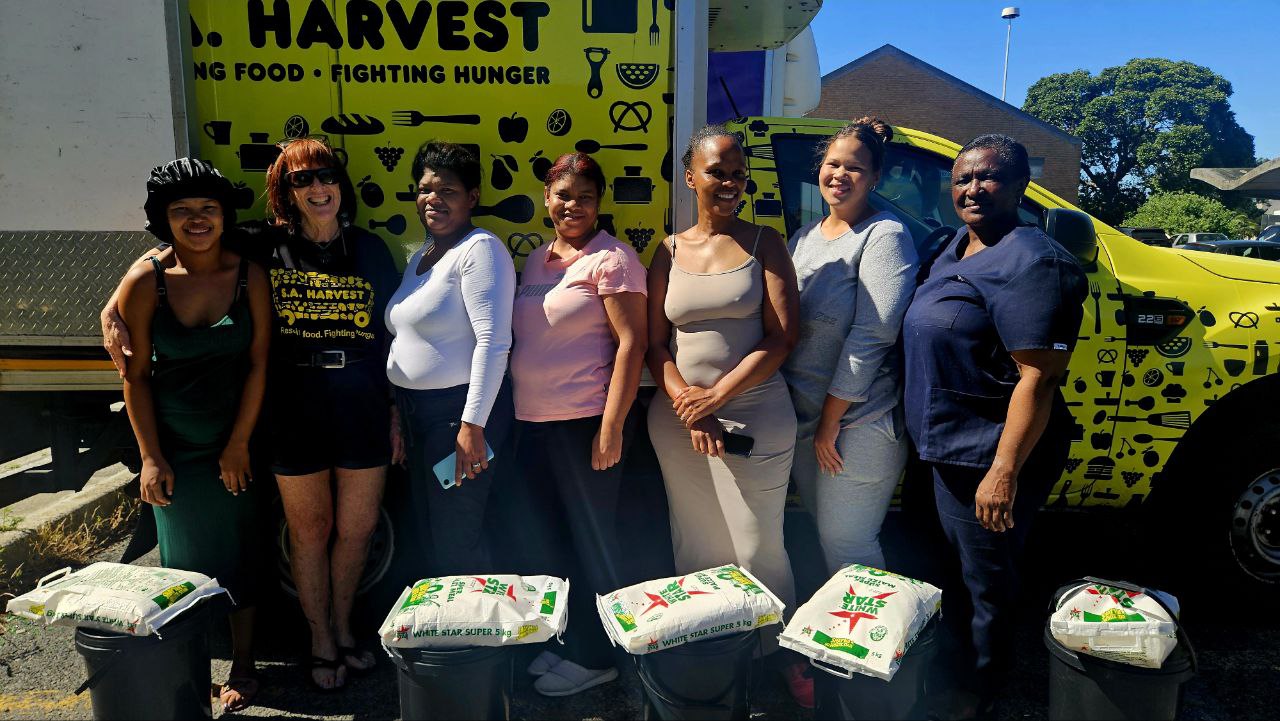
The Saleswoman Who Became a Humanitarian
Before food rescue became her calling, Margolite’s career was an eclectic mix of reinvention. She trained as a dental hygienist, but after living in Tanzania, regulations stopped her from practicing in South Africa. Someone mentioned a sales position at a publication, and she decided to try.
“I’d never done sales before,” she laughs, “but I knew I could connect with people.”
She learned quickly, moving through publishing, events, and exhibitions. “It was always sales, always about bringing people together. I loved it. I still do.”
That instinct to connect, the one that turned her into a natural salesperson, became her superpower at SA Harvest. “I’m a networker. Every day I meet people, and if I believe in something, I’ll never stop. If I meet someone new, I’ll rope them in somehow,” she says, smiling. “Either they get roped in, or they don’t.”
That smile, that humility, hides a ferocious determination. Once she sets her mind to something, she’s unstoppable.
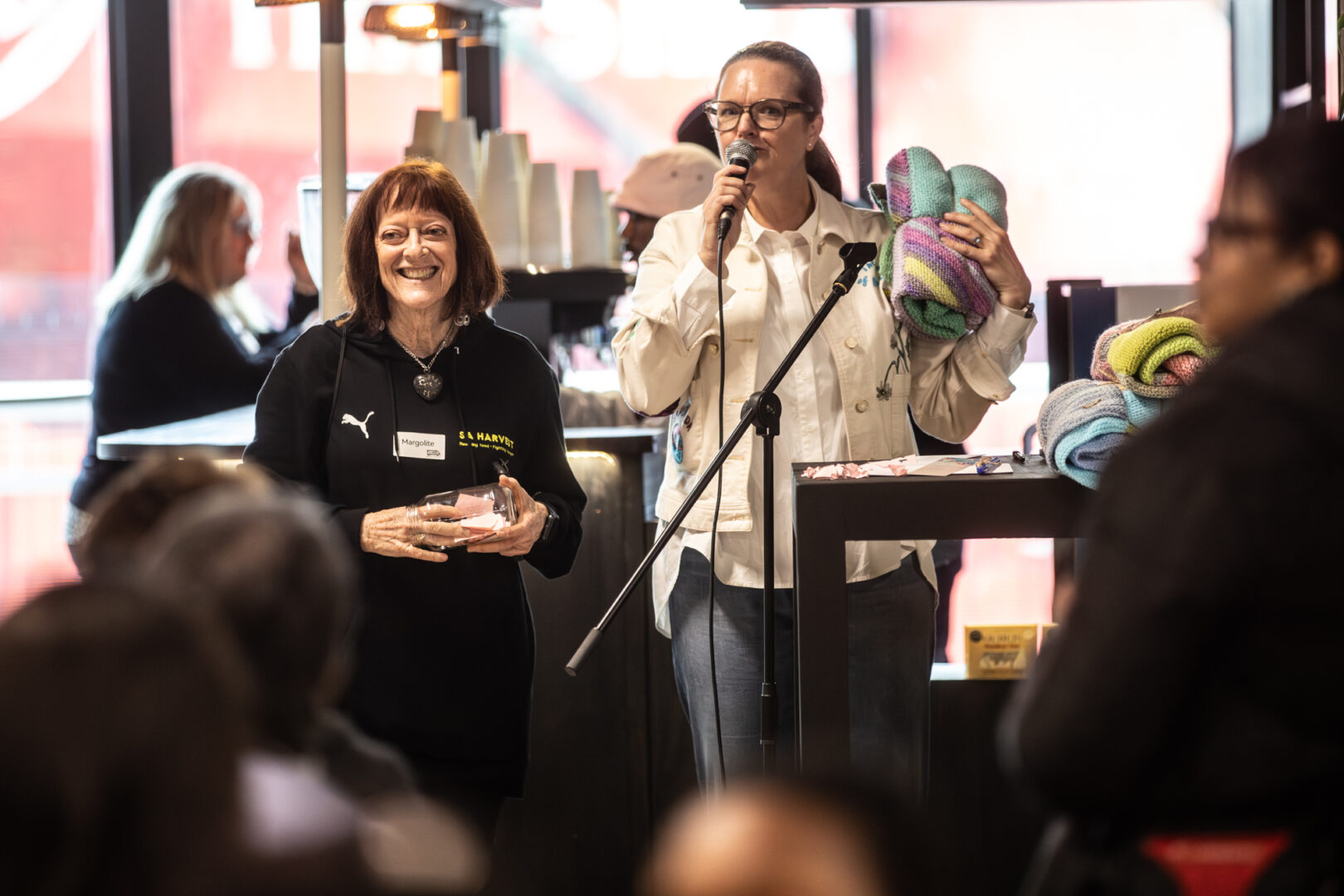
Building a System from the Heart
When she joined SA Harvest, there was no clear roadmap for procurement. Relationships with major suppliers were tentative, the process still fragile. What she brought was persistence, as well as a kind of empathy that money can’t buy. She made hundreds of calls, followed up again and again, and charmed people into caring.
“It’s all about how you speak to them,” she says. “You make them feel like they’re doing something incredible. You make it easy for them. Hassle-free. We’ll pick it up, deliver it, handle everything. And they’ll get their Section 18A certificate. It’s a win-win.”
Her biggest victory? Convincing Checkers to come on board. It took three years. “I used to call and follow up constantly,” she recalls. “Then one day, I was hiking, and I bumped into the guy on the mountain when we went hiking! He said, ‘Let’s talk on Monday.’” She laughs, remembering it. “You just never know where the connection will happen. You’ve got to be ready. And kind.”
For her, kindness isn’t a soft skill. It’s a strategy. “You have to charm them, but with a genuine heart.”
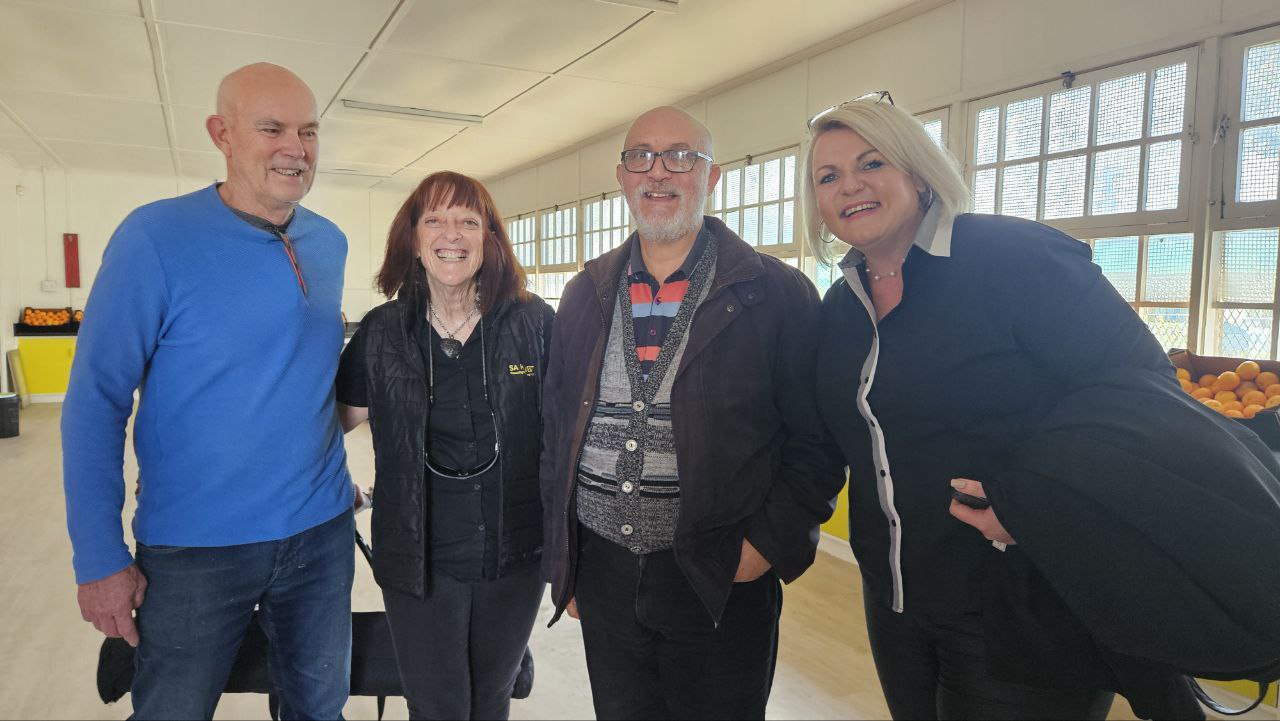
The Tough Landscape of Food Rescue
The food rescue world isn’t for the faint-hearted. It’s fast-moving, unpredictable, and often deeply emotional. The stakes are high: for every truck that doesn’t leave the warehouse, there are mouths that don’t get fed.
“It’s a tough environment,” she says quietly. “Some days, you just can’t. Then you have a win… And that’s what keeps you going.”
Lately, those wins have become harder to find. Retailers are keeping their food on the shelves longer, reducing prices until the last possible moment. “It’s all about money now,” she says. “They’ll drop prices until just before expiry. By the time it’s donated, it’s often too late.”
The paradox breaks her heart. “They say there’s so much food waste (and there is!), but it’s also harder than ever to rescue it.”
Still, she believes in perseverance. “You can’t do this work unless you’re passionate. It’s not a nine-to-five job. It’s a calling. You’re on your phone at night, following leads in the morning, meeting people, calling logistics companies. You live it.”
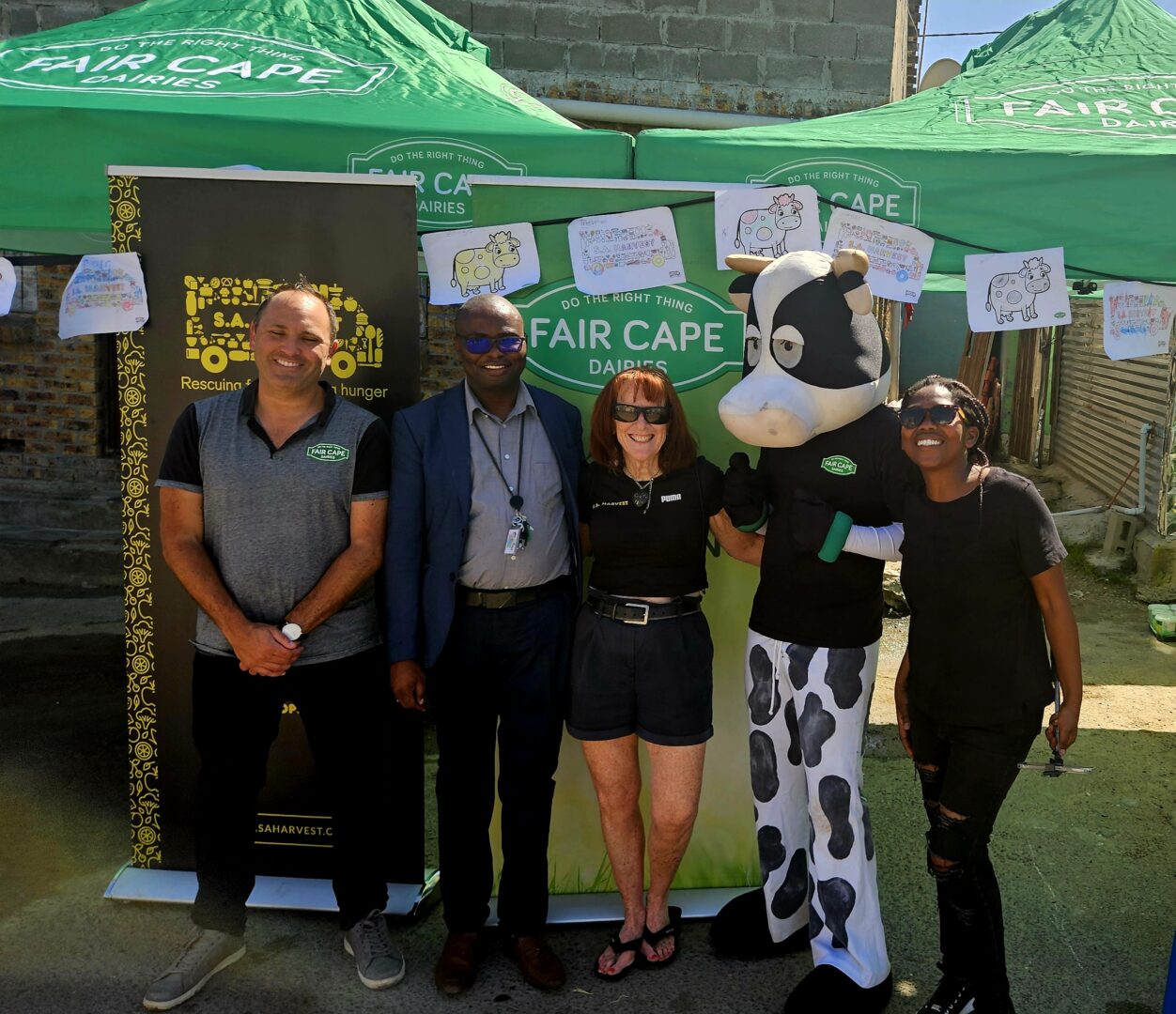
The Secret Sauce
When asked what her “secret sauce” is, the thing that makes her able to do what so few can, she smiles again. “Humanity,” she says. “Treat everyone like a person. Whether it’s the CEO or the driver, talk to them the same way. Be real.”
She doesn’t measure success in data or numbers. “The number of meals? The tonnage? That means nothing to me,” she says. “Getting food to people, that’s what matters.”
It’s a disarming statement in an age obsessed with metrics, but it’s the heart of her philosophy: compassion before compliance.
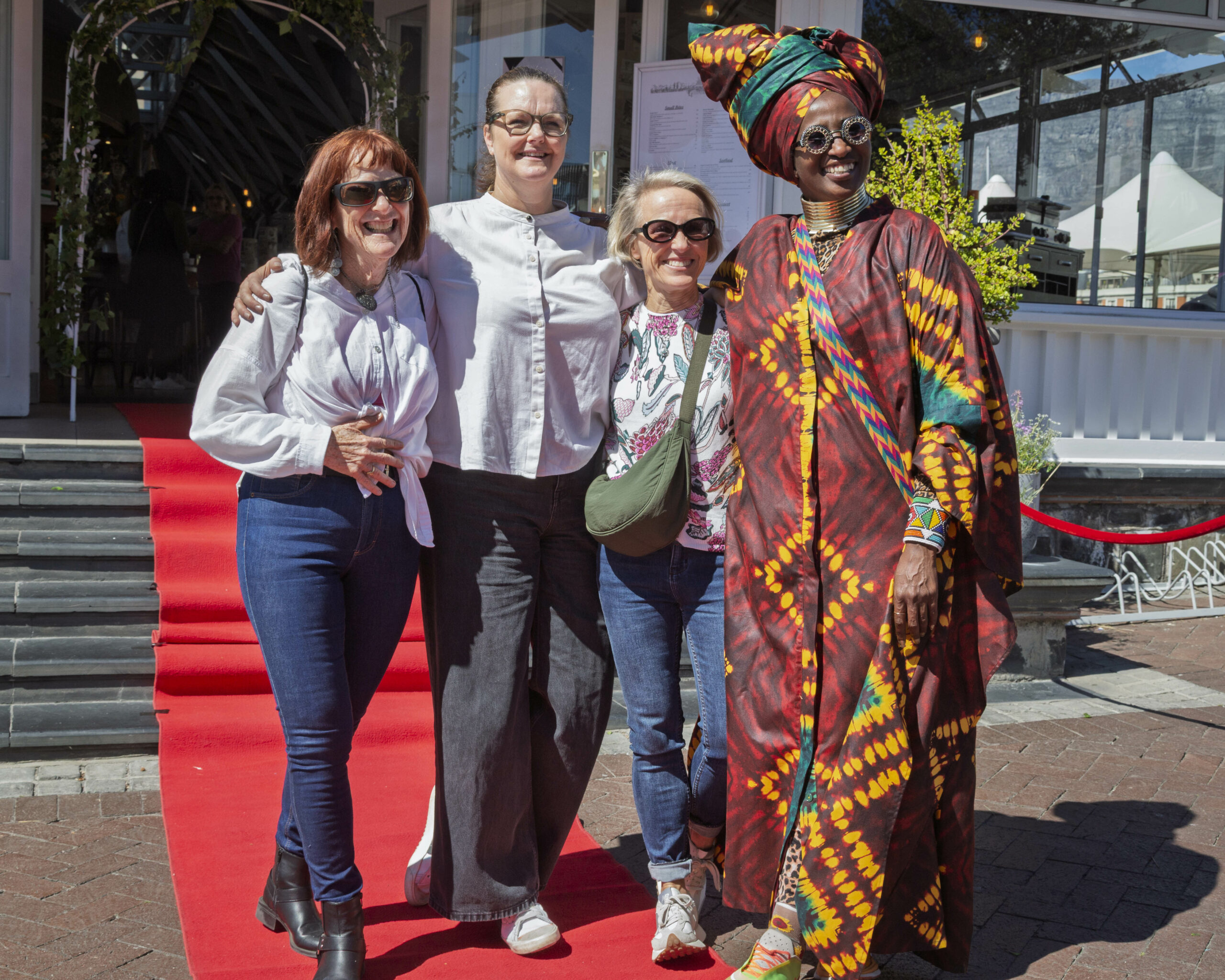
Burnout, Bureaucracy, and the Need for Change
Margolite admits there were moments when she nearly broke. “You burn out,” she says. “You go full speed, you collapse, you rest for a bit, and then you get up again. That’s just how it is.”
After years of giving everything to SA Harvest, she reached a turning point. The constant meetings, the forms, the approvals. It all started to feel like it was getting in the way of what she loved: doing.
“I’m not built for boxes,” she says firmly. “When I see something that needs doing, I don’t want to ask 150 people for permission. I just want to do it.”
So, when she stumbled onto a broken school in Salt River, everything changed.
Margolite admits there were moments when she nearly broke. “You burn out,” she says. “You go full speed, you collapse, you rest for a bit, and then you get up again. That’s just how it is.”
After years of giving everything to SA Harvest, she reached a turning point. The constant meetings, the forms, the approvals. It all started to feel like it was getting in the way of what she loved: doing.
“I’m not built for boxes,” she says firmly. “When I see something that needs doing, I don’t want to ask 150 people for permission. I just want to do it.”
So, when she stumbled onto a broken school in Salt River, everything changed.
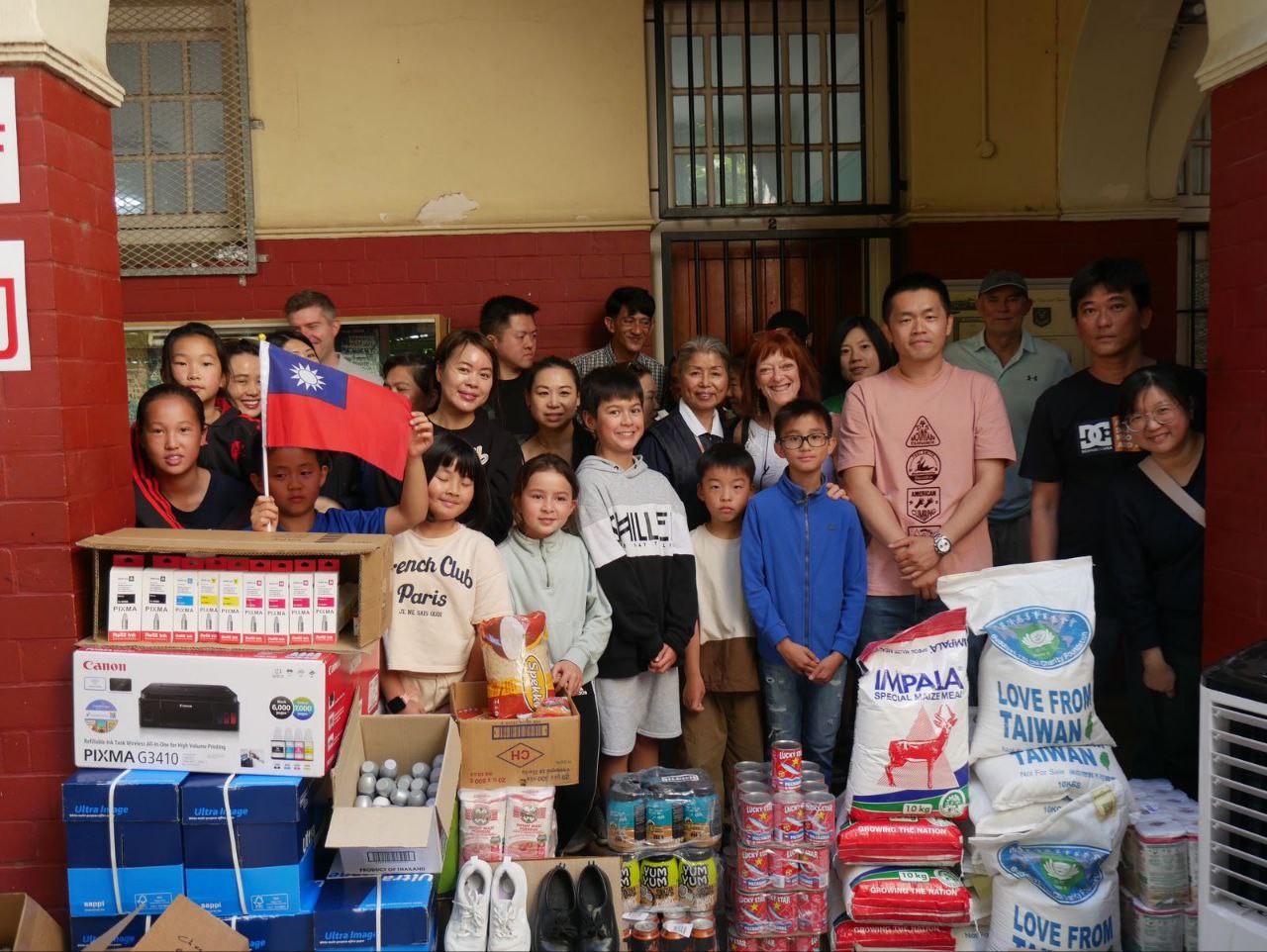
The Day She Walked into Salt River High
It began with a practical task: she and her husband Brian were looking for a kitchen. SA Harvest needed a space to cook meals. They called around, churches, schools, and one of those calls led them to Salt River High.
When she walked through the gates, she was stunned. “I couldn’t believe the conditions. Children were studying in rooms that were falling apart. I said to Brian, ‘Why don’t we give our time to a school like this?’”
He had spent years volunteering at another school in Camps Bay. This, though, was different. “He said he wouldn’t know where to start. I told him: you start with one thing.”
They asked the principal what was needed most. “He said, ‘A library.’ Within two months, there was a library,” she says. “That’s how it started. And the change since then, it’s tangible. You can feel it when you walk through the gates.”
Since SA Harvest began feeding Salt River High, the school’s pass rate has risen from 67% to 82%. There’s a volunteer-run counselling hub. Plans for sports and music programs are underway. The energy is shifting.
“You can see the change every day,” she says. “Food and trauma. That’s what holds these kids back. We’re helping them with both.”
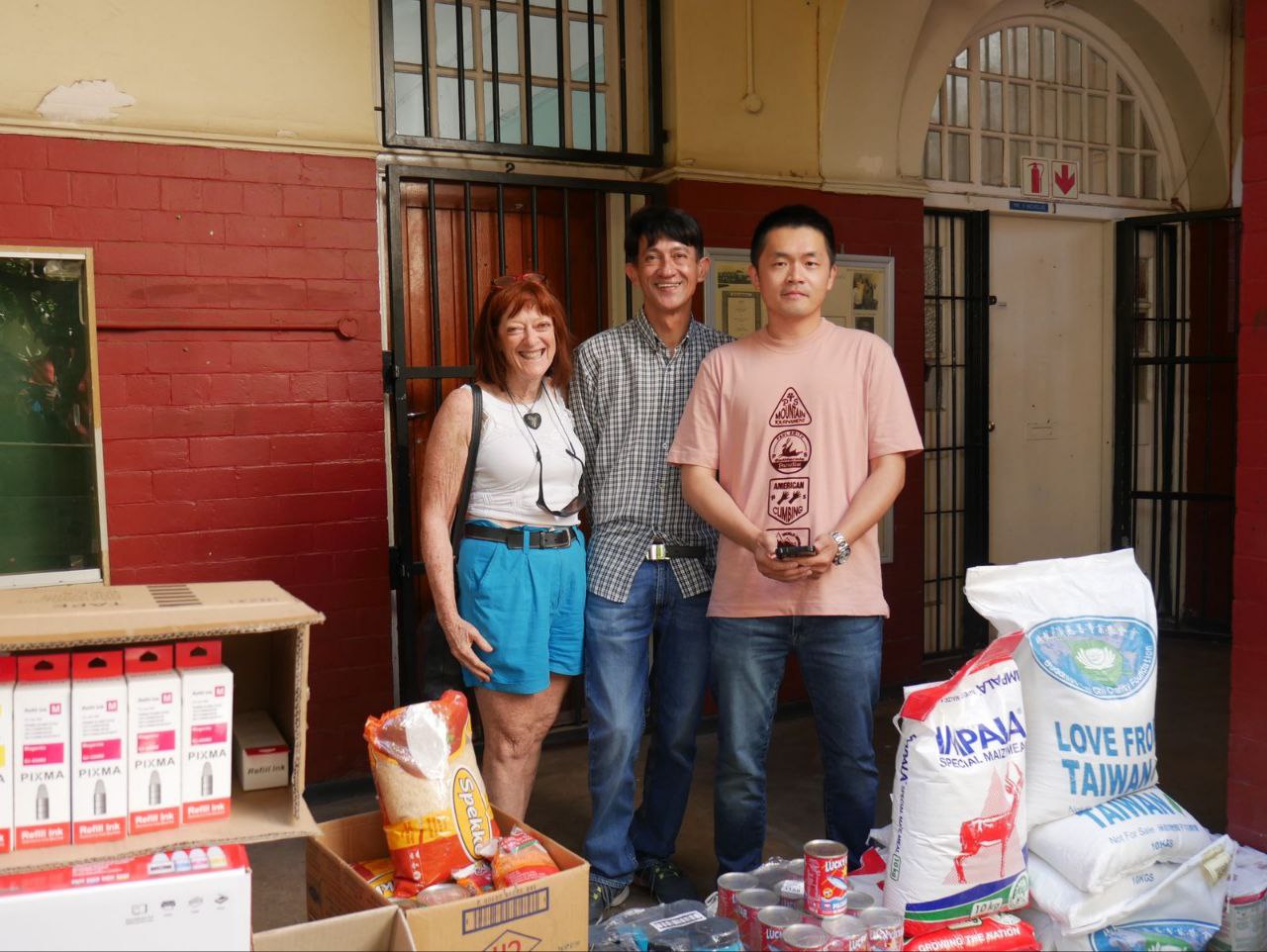
Rebuilding Dignity, One Child at a Time
Her voice softens when she speaks about the children. Many are orphans. Some live on the streets. “Out of 620 learners, about 130 have no parents,” she says. “The school is their safe space… even if it’s not perfect, it’s safer than home.”
She shakes her head, her tone heavy but determined. “If privileged kids knew what these children go through, they’d bow down in gratitude. These kids aren’t depressed because they don’t know what to do with life. They’re just trying to survive.”
Every day, she sees stories that break her heart and moments that restore her faith. A girl who wanted to drop out now dreams of studying teaching. A boy who struggled to focus has found purpose through music. And behind each of these small miracles is food. A simple plate of rice, a sandwich, a warm meal that says: you matter.
